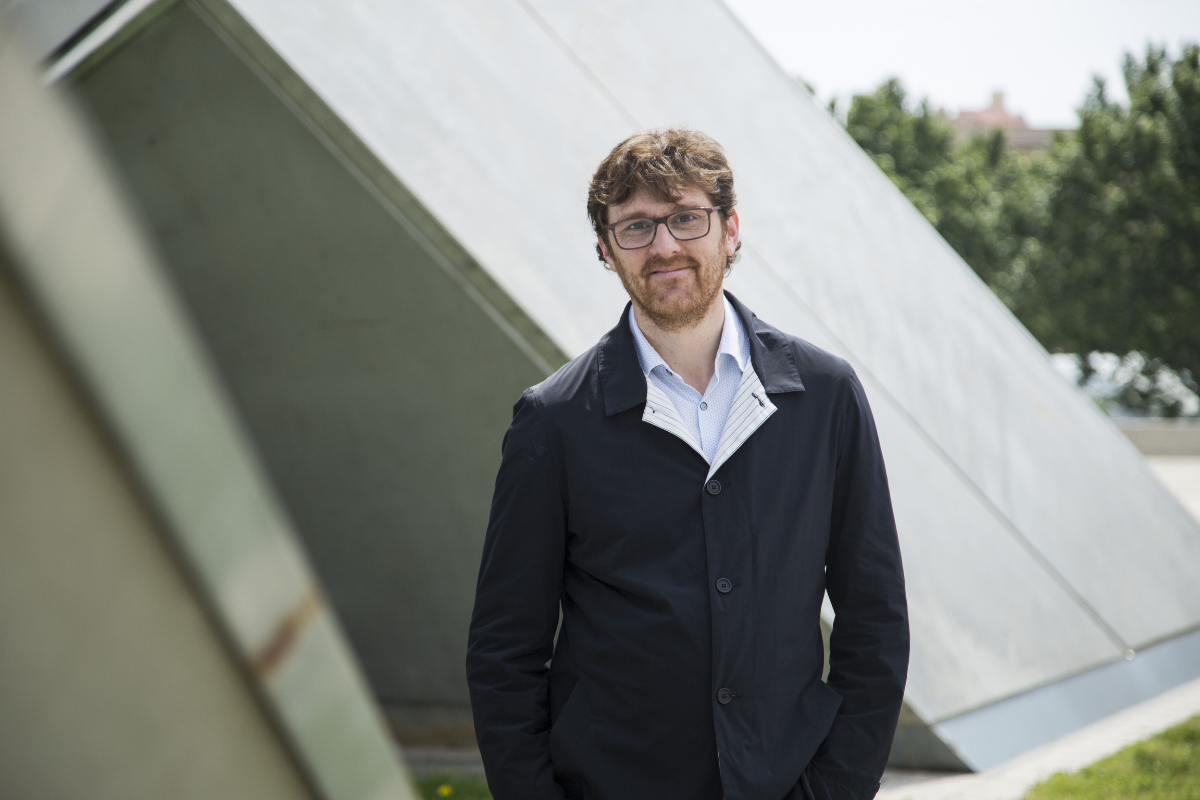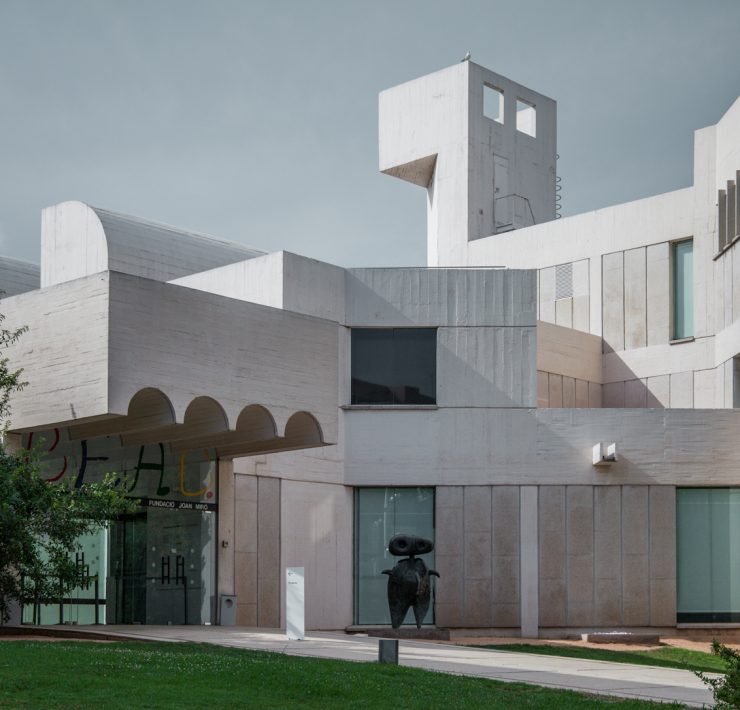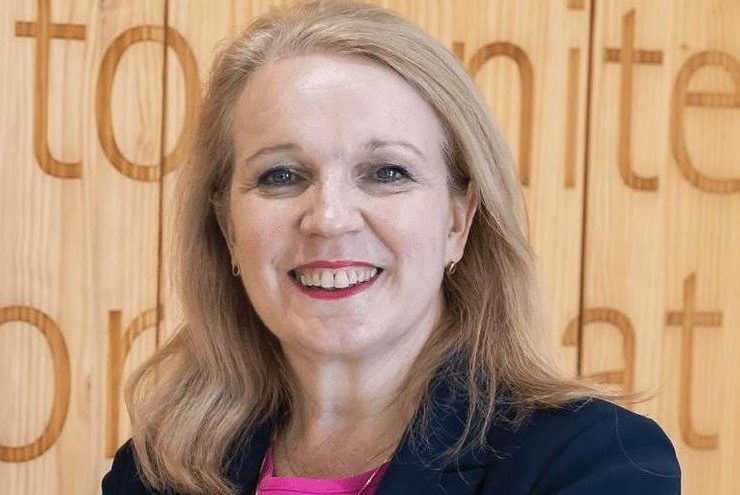The OFFF festival, a meeting point for creatives from around the world

Foto: viaempresa
Pep Salazar is CEO of the company that manages the festival. He has also directed for the festival for the last sixteen years.
Could you tell us what OFFF Barcelona is and what lies behind it?
OFFF is a design conference, a meeting point for creatives from all over the world, and a festival whose aim is to show, teach and report on digital innovations used in visual creation. We cover what is happening online, in special effects for television, film, series, etc., and in new technologies, artificial intelligence, and so on.
The first OFFF—Online Flash Film Festival—took place in 2000 in an online format when technologies were not as advanced as they are today. At that time there was only one main one technology, Flash, and our focus was film, hence our name.
With the end of Flash we moved away from the online format and we now focus on both film and digital creativity, with the festival offering three days of intense activity for industry professionals.
What is your target audience?
Although the festival is quite niche, we make a major impact due to the fact we were pioneers in the field and so we are able to invite leading professionals in the sector. We invite those we would like to see playing a role in the festival as an important part of our job is to see who is doing what and transmitting this to others.
As for the public, they come to be inspired and to find out about the new technologies and new tools. 90% of the audience is from abroad, with visitors coming from some 82 different countries.
Este dato representa la potencia de la marca OFFF, el festival tiene un gran impacto en el sector, y es muy reconocido internacionalmente. La ciudad también juega un papel crucial, porque Barcelona tira mucho, y todo el equipo conoce perfectamente cómo se trabaja y eso también hace que la gente quiera venir.
Do you think that the origins of the project in Barcelona play an important part in its success?
We have been running the festival for quite a while, and now we also exhibit in a number of other cities. In fact, this year we will go to Mexico, Montreal, Seville and Vienna, where the audience is mainly local. The most international festival is in Barcelona, partly because this is where it started and partly because of the pull of Barcelona itself.
Barcelona is relatively affordable, a very approachable city, neither too big nor too small, offering all the grandeur of a big city and the attention to detail of a small one. It is also a very open city, looking out towards the sea and north towards France. It is a city where design plays a very important role, and in fact, the OFFF takes place in the Design Museum itself. All this makes Barcelona the ideal location to hold an event of this nature.
Which cities should Barcelona learn from?
Several cities and for different reasons. Paris and London are clear leaders in business and creativity as they are major cities that are home to the headquarters of large companies. Barcelona is a decent size, but business is not as well consolidated as in Paris and London. We should also learn from many other Mediterranean cities, but one that Barcelona is particularly good at is staging festivals.
Next year you will be celebrating your 25th anniversary. Are there any special events that we should put in the diary?
We have a clear objective, which is to celebrate in style! We are not intending to make the festival bigger, but we do want to do something festive and to open it to a wider audience. It’s important for people to learn about digital art and digital creativity.
There will be new spaces like the Plaça de les Glòries, which should be completed by next year and which will play an important role.
Do you think artificial intelligence it is a threat to the digital arts?
The digital world is now part of all our lives, but we need to realize that digital tools also need human input and creative skills.
It is true that there is a lot of talk about artificial intelligence, with people saying it is changing the world, but artificial intelligence needs to be trained: you need to tell it what you want it to do. And you need a creative background, so it can understand why you are working, who you are working with, what the objective is, and the target audience... Maybe AI can help one to get faster results or to test out one’s ideas, but there are still dream worlds like Wes Anderson’s that can only be achieved with true digital craftsmanship.
And as the director of a creative festival, what do you think of the creative scene in Barcelona?
There are plenty of artists here in Barcelona who we invite to tell us what they are doing at OFFF. On a creative level we are on the same level as London, San Francisco or New York. Moreover, at OFFF we always like to shake things up a bit. This can be really stimulating for creatives even if the work may not be strictly within their own sector.
If you had to describe in one word what to expect during the festival week, what would it be?
I think it’s curiosity. It’s curiosity because it’s important to go there and discover new things.
And do you think more could be done in Barcelona to improve creative education?
Yes, it could always benefit from more opportunities for content creators and artists. This year, as in previous years, we are running an exhibition called ‘The Next of Us’ featuring the 10 design universities in Barcelona. We display the best three works by students studying for degrees, masters and other postgraduate qualifications. So, as you can see, we already benefit from a really strong creative educational foundations in Barcelona.
Our intention is for festival to act as a shopwindow for creatives and to show off the diversity of Barcelona’s young creative talent to people from all over the world.
What would you ask of the Barcelona of the future?
I would ask for a stronger connection between the Glòries/Poblenou neighborhood and the city center. The connection is already there in theory, but more could be done to strengthen it in practice. And I would urge the city to remain both open-minded and true to itself.
If you want to know the latest English news about Barcelona and the people who bring it to life, sign up to our Blog.







